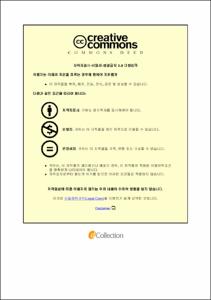딥러닝 기반 Vsion AI를 활용한 불량부품 검사시스템 개선 실증 연구
- Alternative Title
- 자동차 부품 제조 공정 중심으로
- Abstract
- 최근 제조업은 자동화와 디지털 전환을 빠르게 진행하고 있으며 이로 인해 기존 제조 공정에 적용되지 않았던 AI, 빅데이터, IoT 등 첨단 기술을 활용해 생산 공정의 자동화와 최적화를 실현하게 되었다. 이러한 제조 환경은 생산 효율성 극대화를 통해 경쟁력을 강화하는 새로운 제조 패러다임을 제시하게 되었다. 그리고 가장 중요한 품질 관리 공정의 혁신을 위한 수단으로써 AI 기술의 도입 계획이 증가하게 되었다.
본 연구는 비전 AI 기술을 활용하여 자동차 부품 제조업의 품질검사 공정을 개선하기 위한 실증 연구로서 기존에 육안으로 검사하던 부품결함 검출 방법을 AI 기술로 완전 자동화함으로써 혁신적인 품질공정을 구현하고자 하였다. 기존의 부품결함 품질검사 방식은 주로 사람의 품질 검사에 의존하게 되면서 많은 한계점에 부딪히게 되었다. 우선 불량품 육안 검사의 효율성을 유지하기 위해서는 숙련자의 역량이 매우 중요하다. 이러한 숙련자는 경력이 많다는 특징이 있기 때문에 경쟁사로의 이직이 빈번하게 발생하게 되었다. 그 결과 비숙련자가 대체 업무를 처리하게 되면서 불량률 검출률이 낮아지게 되었고 생산성이 저하되는 문제가 발생하게 되었다. 이처럼 검사자가 주관적으로 판단함에 따라 인적 실수와 오류가 발생하기 쉬웠고 검사 시간도 길기 때문에 품질 검사 공정 목표에 한계가 있었다. 이러한 문제를 해결하기 위해 컴퓨터 비전을 통해 규칙 기반 불량 검사 시스템이 도입되었지만 복잡한 결함에는 대응이 어렵고 환경 변화에 민감하여 새로운 불량이 발생할 때마다 규칙을 수정해야 해 유지 관리에 많은 비용이 든다는 단점이 있었다.
본 연구에서는 AI 기술을 활용해 제품 검사 시스템의 검사 속도를 향상시키고 자동화를 이루어 경쟁력을 강화하는 기술을 구현하였다. 기존 육안 검사 방식의 한계를 극복하고자 객체 탐지 모델(Object Detection Model)을 적용하여 불량 부품을 실시간으로 정확하게 검출함으로써 품질 관리의 정확성을 높이고 검사 공정 자동화를 촉진하는 것을 목표로 한다.
자동 검사 시스템 환경에서는 불량부품의 신속한 판별 및 자동화된 품질 관리가 필수적이다. YOLO, Faster R-CNN, MobileNet 모델을 비교 분석하여 각 알고리즘의 검출 정확도와 처리 속도를 비교분석 및 검증을 하였으며 YOLO 모델이 타 모델에 비하여 우수한 성능을 나타내었음을 실증하였다.
본 연구의 결과로서 객체 탐지(Object Detection) 모델을 중심으로 한 딥러닝 기술의 적용 가능성을 높일 수 있었으며 실시간 검사 및 불량부품 판별에 최적의 효과를 확인할 수 있었다. 이러한 결과는 자동차 부품 제조업의 불량부품 검사 시스템에 인공지능 기술을 적용할 경우, 생산 효율성 향상과, 검사 비용 절감에 효과성을 입증함으로써 경영 개선에도 큰 기여를 할 수 있음을 보여준다.|The manufacturing industry has recently been integrated into a production process where advanced technologies such as artificial intelligence (AI), big data, and IoT have not been applied before through rapid automation and digital transformation. This change resulted in a new manufacturing paradigm focused on maximizing production efficiency and enhancing competitiveness. In particular, the focus is on adopting AI technology as an important tool for innovating the quality control process.
This study presents an empirical approach to improve the quality inspection process of the automotive parts manufacturing sector by utilizing vision-based AI technology. Previously, defect detection relied heavily on manual visual inspection, and there were several challenges. Skilled inspectors played an important role in maintaining inspection quality, but frequent retirement and turnover reduced the transfer of experienced personnel, leading to lower defect detection rates and lower productivity. In addition, human judgment was prone to errors and contradictions, and the effectiveness of quality control was limited as the inspection time increased. The cost of maintaining experienced inspectors was also considerable.
To address these problems, a rule-based defect inspection system using computer vision was introduced. These systems have the benefits of automation, but they suffer from complex defect patterns, are sensitive to environmental changes, and require costly updates whenever new defect types emerge.
Therefore, this study aims to improve competitiveness by increasing inspection speed and automation using AI technology. The object detection model was applied to overcome the limitations of manual inspection, enable accurate detection of defective parts in real time, eventually improve inspection accuracy, and promote automation of quality control processes.
In an automated inspection environment, fast and automatic defect identification is essential. Recently, deep learning models such as YOLO, Faster R-CNN, and MobileNet have been proposed, each providing high detection accuracy and real-time processing capabilities, contributing greatly to automating manufacturing workflows.
This study focused on the development of a fully automated defect inspection system that replaces traditional manual inspection. We collected data on the target products of our partners and compared the performance of YOLO, Faster R-CNN, and MobileNet models in terms of detection accuracy and processing speed. Experimental results showed that the YOLO model is superior to other models in both respects.
Overall, this study confirmed that deep learning-based object detection technology is practical for real-time inspection and defect identification in automotive component manufacturing.
- Issued Date
- 2025
- Awarded Date
- 2025-08
- Type
- Thesis
- Keyword
- 스마트 제조; AI 기반 품질 검사; 자동차 부품 제조; 딥러닝
- Affiliation
- 한성대학교 지식서비스&컨설팅대학원
- Department
- 지식서비스&컨설팅대학원 스마트융합컨설팅학과
- Advisor
- 원종혁
- Degree
- Master
- Publisher
- 한성대학교 지식서비스&컨설팅대학원
- Appears in Collections:
- 스마트융합컨설팅학과 > 1. Thesis
- Files in This Item:
-
-
Download
 200000900836.pdf
기타 데이터 / 1.56 MB / Adobe PDF
200000900836.pdf
기타 데이터 / 1.56 MB / Adobe PDF
-
Items in Repository are protected by copyright, with all rights reserved, unless otherwise indicated.